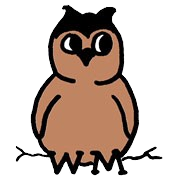Maths
Maths Curriculum Intent
The language of mathematics is international. The basic skills of mathematics are vital for the life opportunities of our children. Our aim is for all children to think mathematically, enabling them to reason, solve problems and assess risk in a range of contexts.
At White Mere Primary School, our Mathematics curriculum has been developed to ensure every child can achieve excellence in mathematics. Children can experience a sense of awe and wonder as they solve a problem for the first time, discover different solutions and make links between different areas of mathematics. It provides pupils with a deep understanding of the subject through a concrete, pictorial and abstract approach. This ensures pupils fully understand what they are learning.
A daily maths lesson is a feature of life at White Mere where children get to explore, investigate and consolidate a variety of mathematical concepts from the National Curriculum. These are normally organised into blocks of work with the following key focuses.
- Understanding and investigating with number
- Developing and applying calculation – addition and subtraction
- Developing and applying calculation – multiplication and division
- Fractions, Decimals and Percentages
- Ratio, Proportion and Algebra
- Measurement (including length, height, weight and time)
- Geometry (Investigating shape and pattern)
- Statistics
Maths lessons are practical where ever possible; based on the concrete, pictorial & abstract method used throughout the school.
Our mathematical journey begins in the Early Years where children:
- Sing lots of number songs and rhymes whilst learning to count forwards and backwards.
- Learn all about shapes and their properties so that they can describe them in simple terms.
- Use a range of equipment to explore capacity, weight, size and money in real-life situations (such as tape measures, balances, water toys, a till and real coins).
- Learn number facts such as number bonds and doubles to enable fast recall.
- Practise counting regular and irregular arrangements of objects accurately.
- Learn how to add two numbers together and how to subtract a small number from a bigger number.
- Have daily opportunities to practise their maths skills indoors and outdoors in child-led provision.
- Are taught how to write numerals.
- Play lots of games in order to practise counting and recognising numerals.
- Learn how to put numbers in the correct order on a number-line.
- Take part in reasoning and problem-solving activities appropriate to their age
- Children will be immersed in a mathematical environment which enables them to explore, discover and learn new concepts.
In Reception, we concentrate on the 5 counting principles.
- The one-one principle – This involves children assigning one number name to each object being counted. Children need to ensure that they count each object only once ensuring they have counted every object.
- The stable-order principle – Children understand that when counting, the numbers have to be said in a certain order.
- The cardinal principle – Children understand that the number name assigned to the final object in a group is the total number of objects in that group.
- The abstraction principle – This involves children understanding that anything can be counted including things that cannot be touched including sounds and movements, e.g. jumps.
- The order-irrelevance principle – This involves children understanding that the order that we count a group of objects is irrelevant. There will still be the same number.
The description below offers a broad outline of the mathematical development that takes place in each block throughout KS1 and KS2.
Children use concrete apparatus, pictorial representations and symbols to become fluent in a variety of concepts. They are introduced to a wide range of mathematical vocabulary which enables them to understand what it is they need to do. They are also expected to develop their mathematical thinking through problem-solving and reasoning alongside their fluent recall of facts and the use of written procedures.
As learning is defined as ‘an alteration in long-term memory’ we ensure to revisit previously taught concepts using ‘flashback 4’ each day – four questions to consolidate prior learning.
Our children are enthusiastic and keen to learn, they enjoy investigating and have some great success with their learning. Our maths is enabling children not only to grasp basic concepts but spend a lot more time investing, reasoning and problem-solving using the mathematical knowledge they have learnt.
At White Mere primary we’ve chosen to use the ‘White Rose’ maths scheme- we’ve chosen this scheme as we believe in the mastery approach to learning; the sequencing of the scheme works well for our learners and we love the focus on problem-solving.
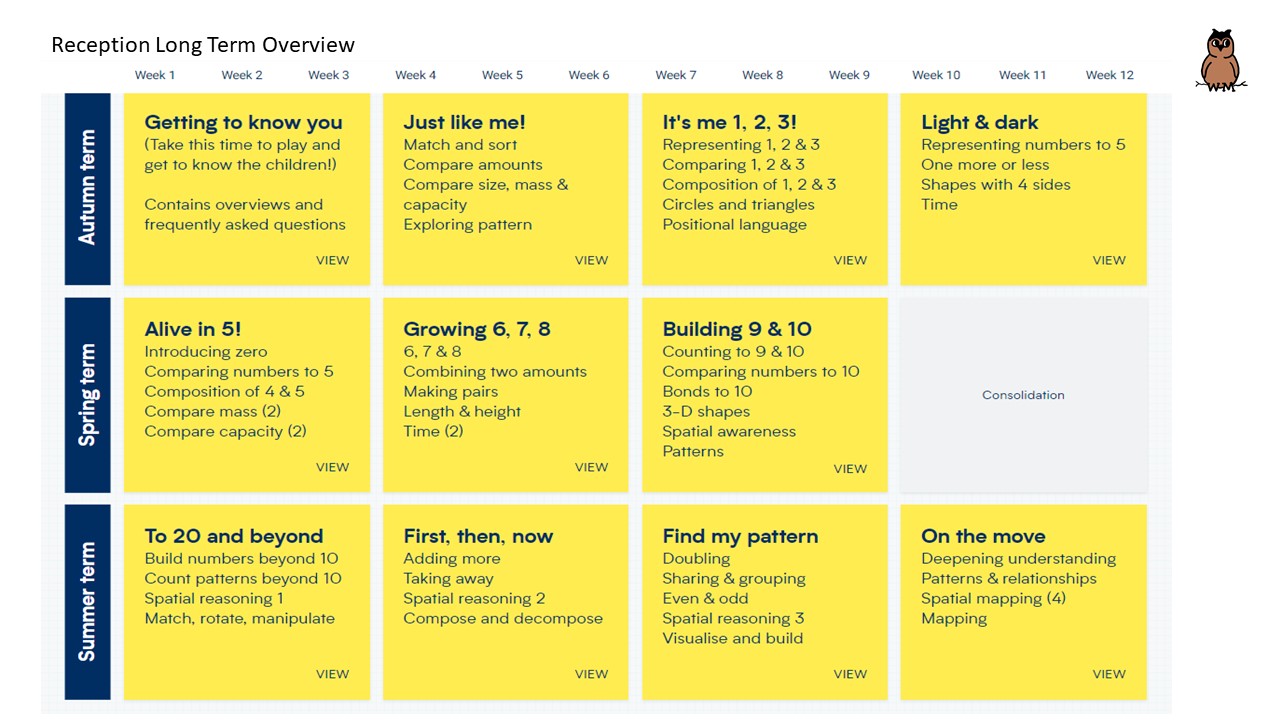
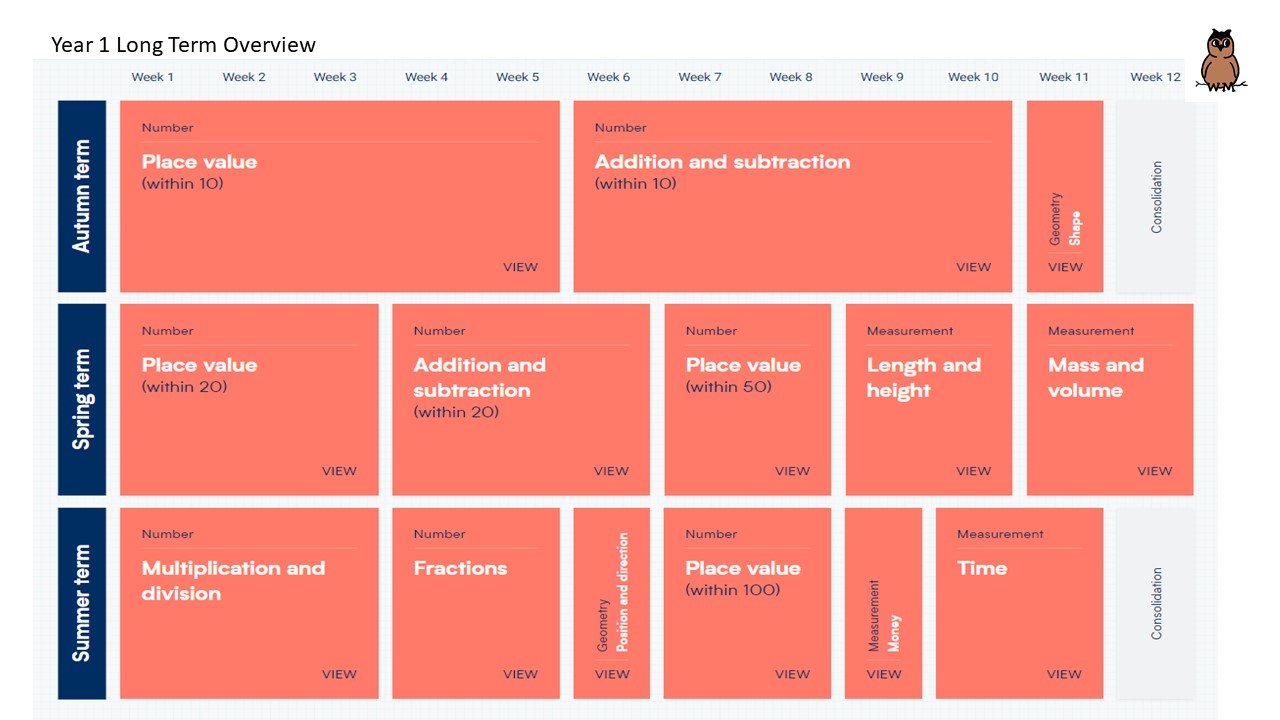
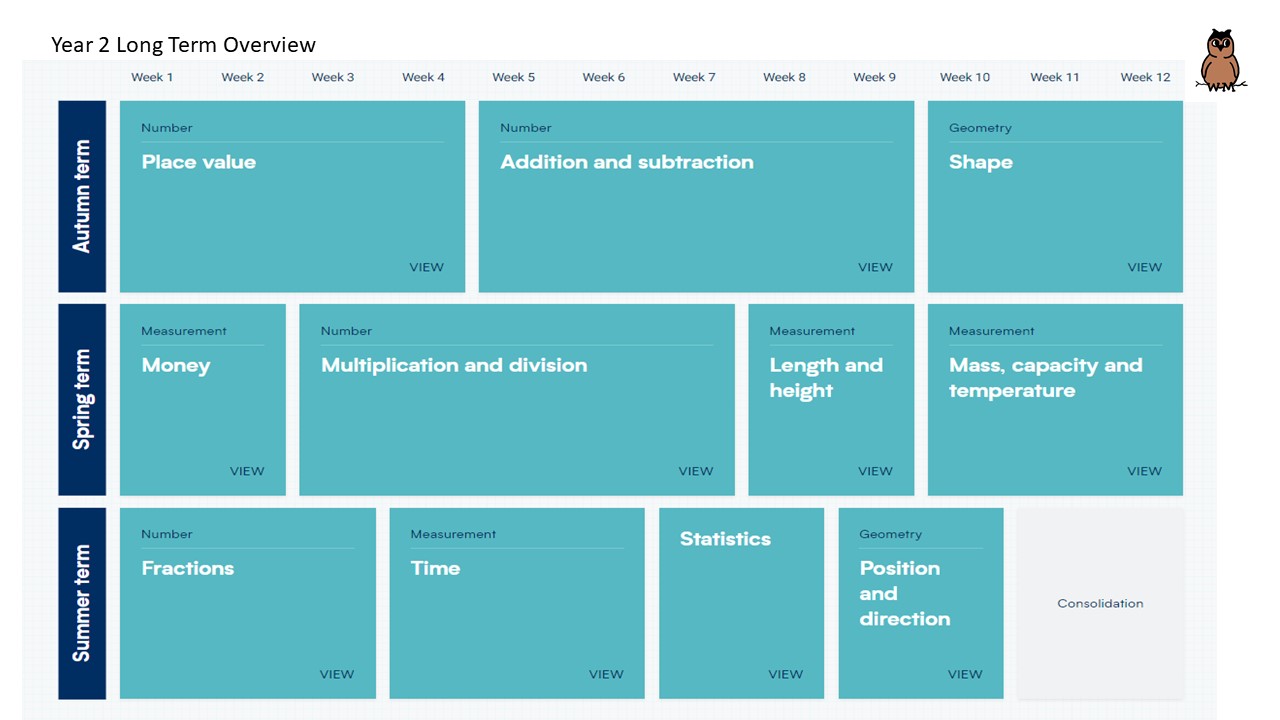
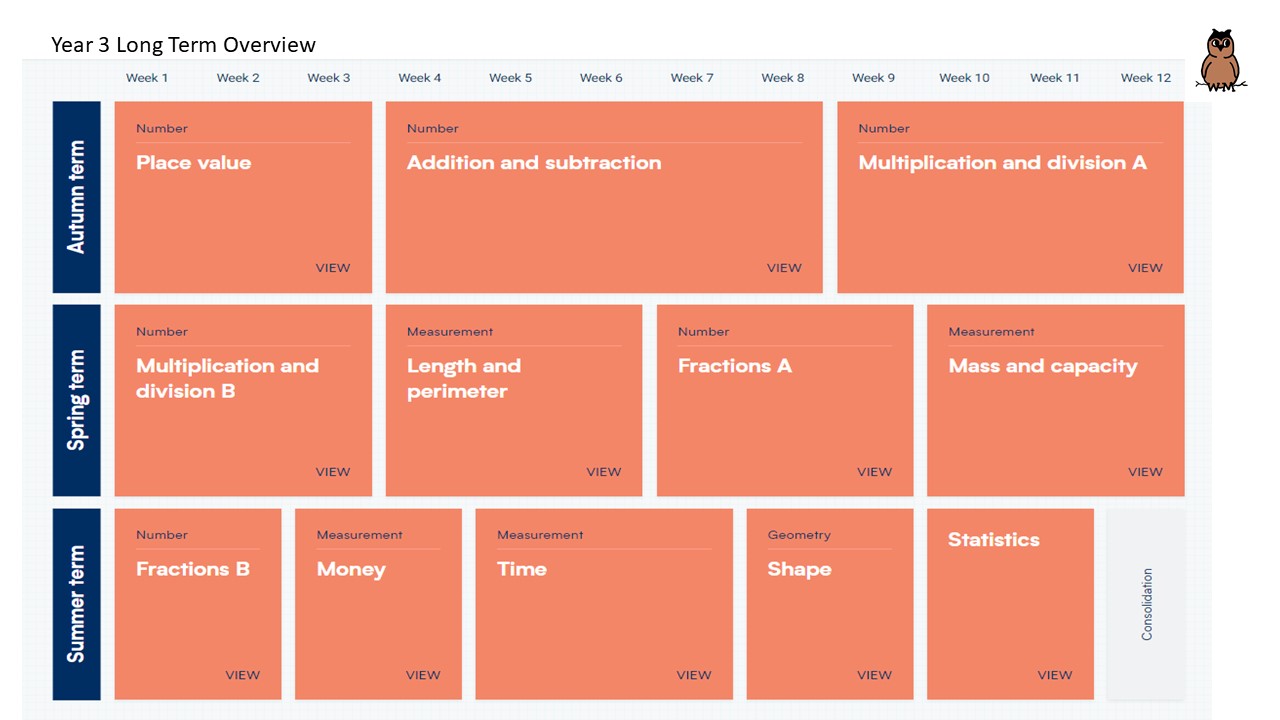
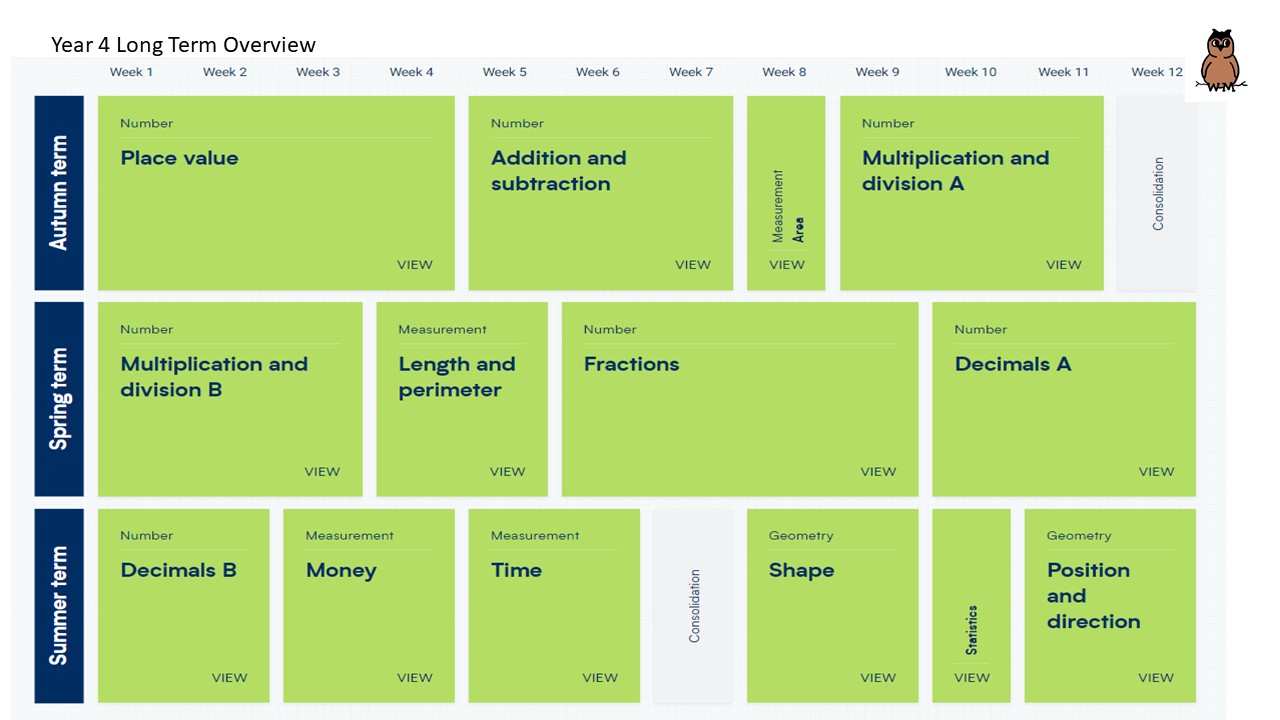
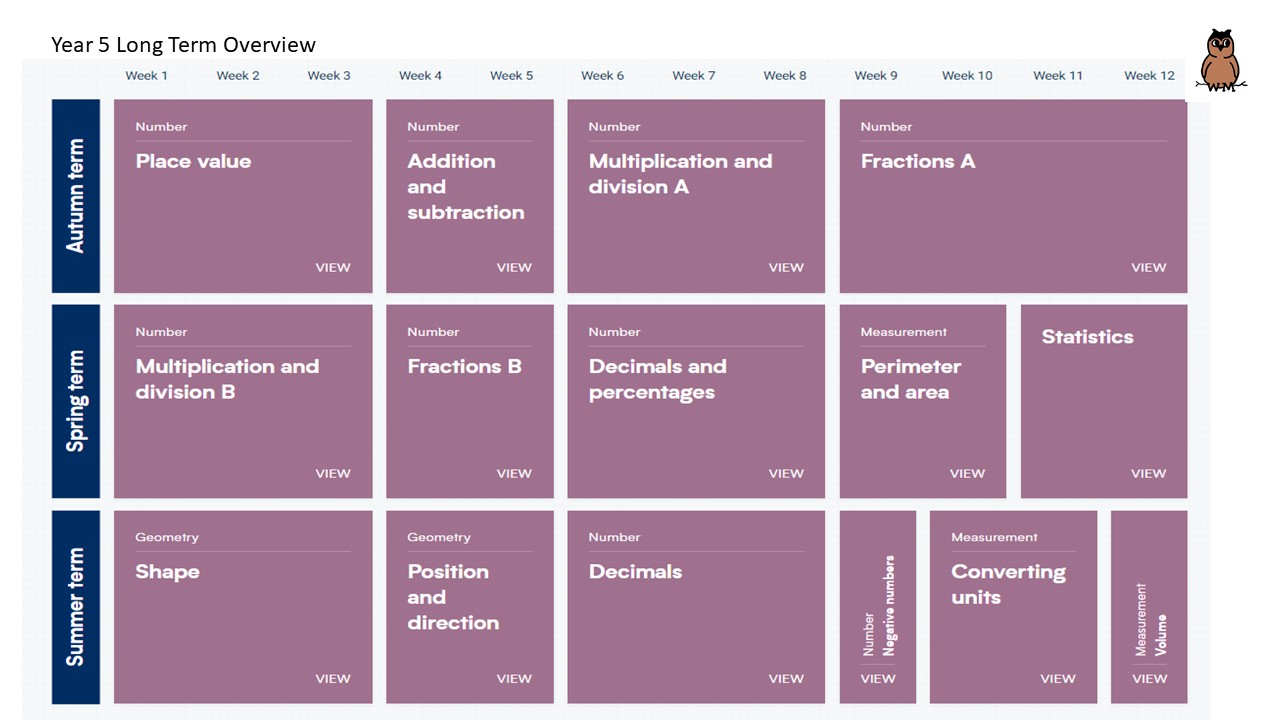
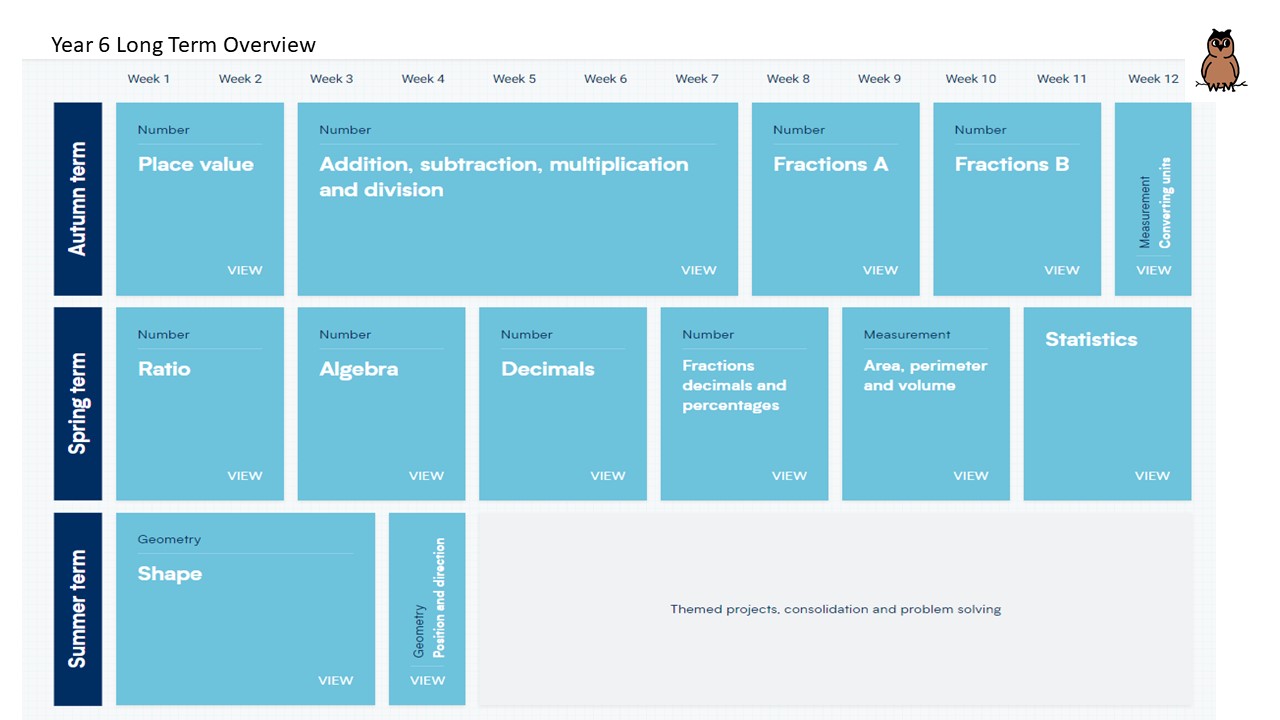
Our intent is always to ensure our pupils are ready for their next phase of education. Our progression map outlines the end-of-unit expectations.
